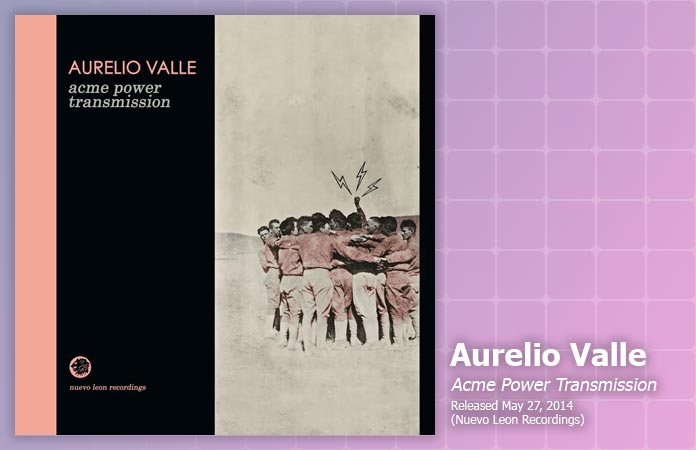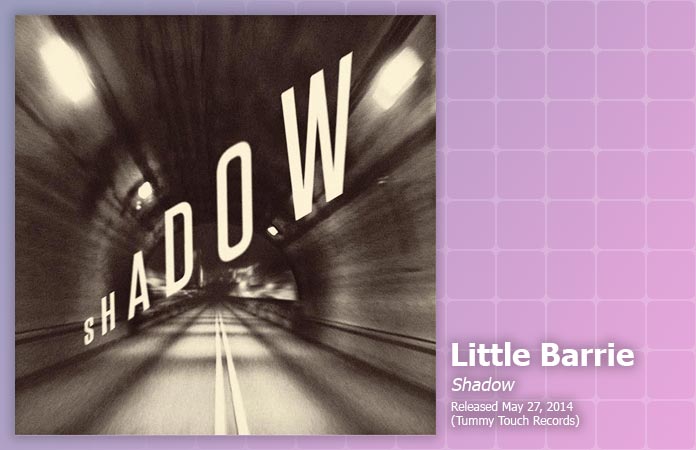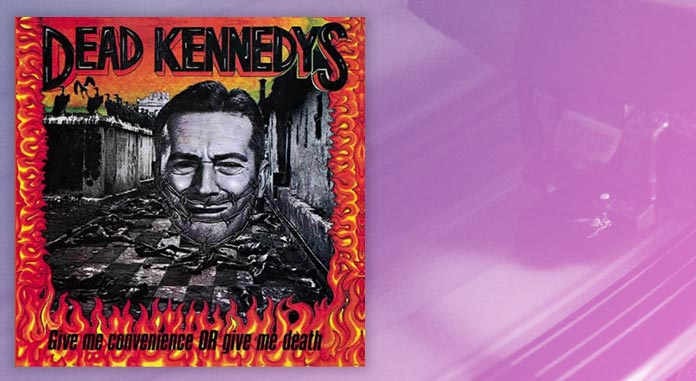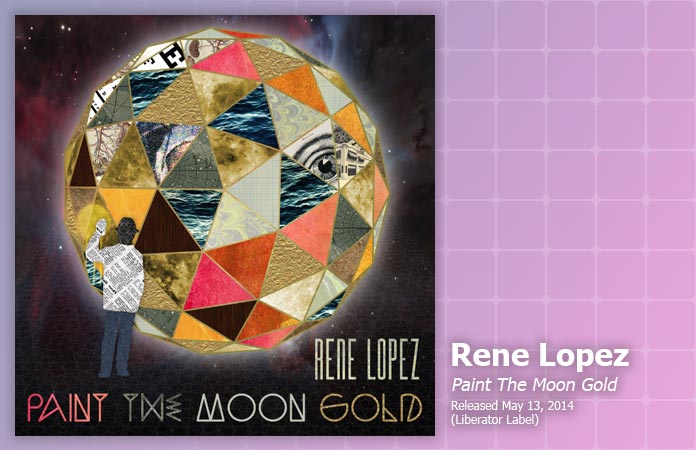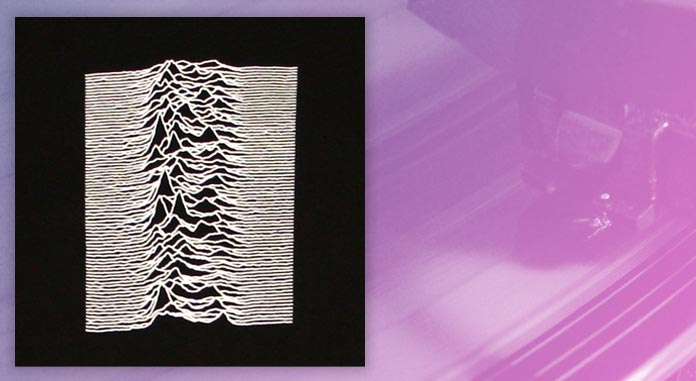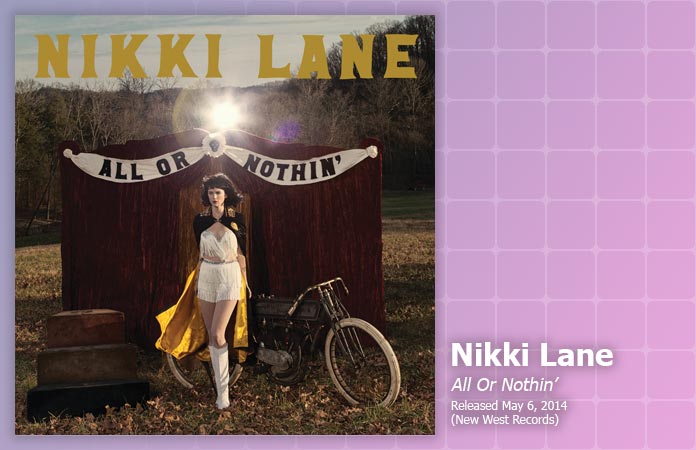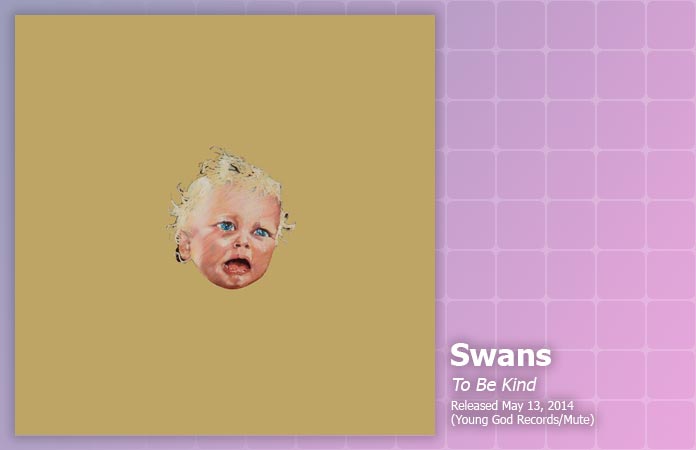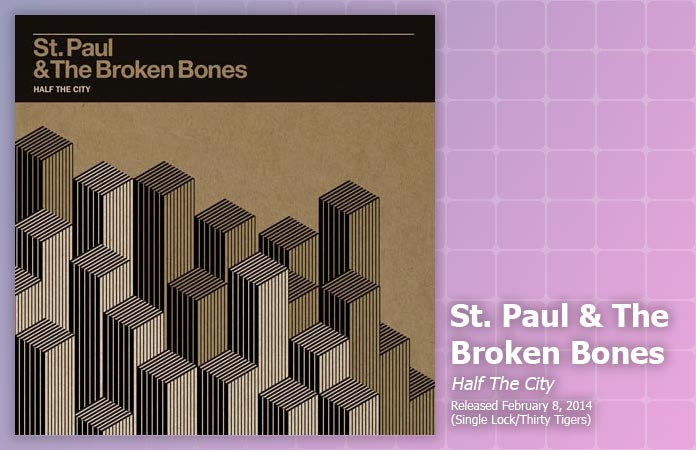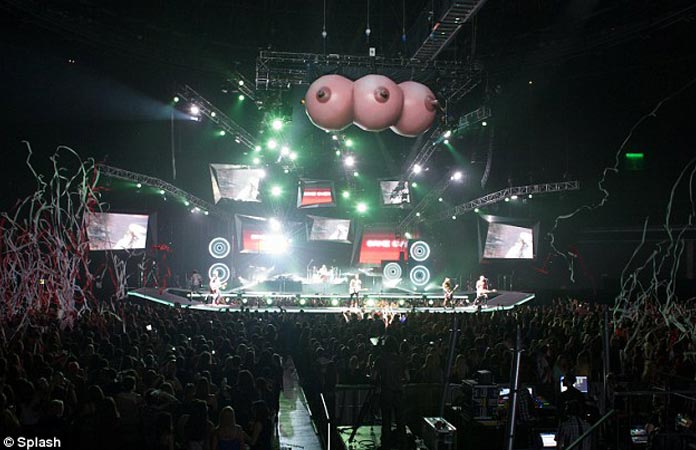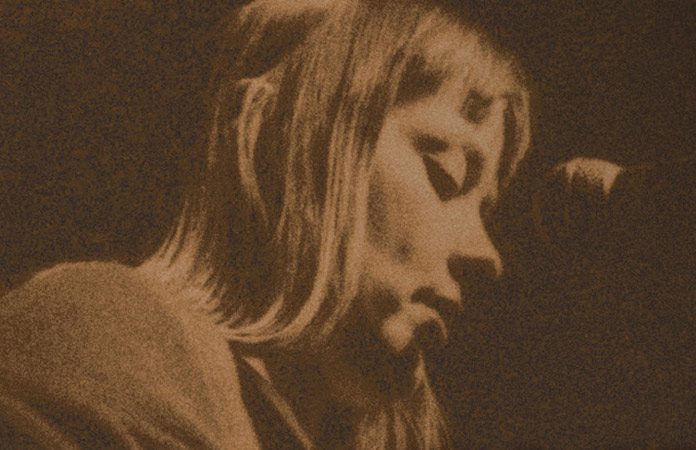Music Review: Aurelio Valle, Acme Power Transmission
Published on May 30th, 2014 in: Current Faves, Music, Music Reviews, Reviews |Not only does Calla front man Aurelio Valle’s debut solo album have one of the best titles of the year (Acme Power Transmission, named after his landlord’s auto parts store), it is also one of the most interesting, atmospheric records I’ve heard in 2014. It could be the score for the next True Detective season, awash in mystery, dark places, and hushed echoes. While not explicitly about a specific place, it has a great feeling of place and specificity.
Music Review: Little Barrie, Shadow
Published on May 30th, 2014 in: Current Faves, Music, Music Reviews, Reviews |By Hanna
Shadow is the fourth Little Barrie album and their first release after a pause in activity for the band; their last album, King of the Waves, was released in 2011. In the meantime, several members of the band have been working for other bands, notably Primal Scream, while Virgil Howe has joined as drummer. These changes are audible in this new album, as Shadow is different from their previous albums.
Waxing Nostalgic: Dead Kennedys, “Insight”
Published on May 23rd, 2014 in: Music, Waxing Nostalgic |The Dead Kennedys were one of the most famous punk bands of the Eighties. Formed in San Francisco in 1978, The DKs were also one of the most outspokenly political bands, each song like a sandwich board. They found their arch-nemesis in President Ronald Reagan and his administration and they poked through the hypocrisies that abounded in that hellish decade, demanding a return to integrity and the simple act of telling the truth.
Music Review: Rene Lopez, Paint The Moon Gold
Published on May 23rd, 2014 in: Current Faves, Music, Music Reviews, Reviews |On his new album, Paint The Moon Gold, New York City musician Rene Lopez draws upon the rich musical tapestry of his city and pens a love letter—to New York, his family, and his heritage. The charismatic Mr. Lopez almost has an old school jazz singer vibe, though he calls his style of music “Electric Latin Soul,” which is as good of a descriptor as anything. Paint The Moon Gold is a cohesive, high-energy album that is paced cleverly. In fact, the album picks up in pace in the last quarter, leaving the listener on a high, rather than drifting off to sleep, lulled by quiet songs and quiet ideas. It’s a smart trick.
Waxing Nostalgic: Joy Division, “She’s Lost Control”
Published on May 16th, 2014 in: Music, Waxing Nostalgic |Joy Division was the ultimate Manchester band, encapsulating that town’s darkness, smoke, and despair in their music as surely as if they had encased it in Lucite. It’s a paperweight. It’s a time capsule. It’s like eavesdropping on someone’s lowest thoughts, hearing the sounds their brains make, the constant loop that brings about madness.
Music Review: Nikki Lane, All Or Nothin’
Published on May 16th, 2014 in: Current Faves, Feminism, Music, Music Reviews, Reviews |On her second album, All Or Nothin’, Nikki Lane (with the help of producer Dan Auerbach of the Black Keys) lets fly with incredibly hook-filled songs about drinking, smoking pot, one night stands, and crappy ex-boyfriends. Nikki Lane is a hard one to pin down: her music easily thematically fits into the “outlaw country” camp, and her voice is a magical mix of Loretta Lynn and Dusty Springfield, and All Or Nothin’ is crazy with the steel guitar of country, but she’s not exactly country. The most striking tracks on All Or Nothin’ sound like they’re straight off of the Red Bird label, the early ’60s girl group record company founded by Leiber and Stoller.
Music Review: Swans, To Be Kind
Published on May 16th, 2014 in: Current Faves, Music, Music Reviews, Reviews |I have an irrational fear of Swans leader Michael Gira. I imagine him striding through the desert at sunset, taking impossibly long steps, heat shimmering from him in mirage waves, impossible to look at directly. He holds out his arms and silently begins to absorb the encroaching darkness, holding it somewhere deep within himself, perhaps in the fetid abyss he calls a “heart.” He moves through the world like the Walking Man and, in my mind, he sounds like Werner Herzog when he speaks.
To Be Kind, the third album from Swans since their reformation in 2010, does nothing to alter that vision.
Music Review: St. Paul & The Broken Bones, Half The City
Published on May 9th, 2014 in: Current Faves, Music, Music Reviews, Reviews |St. Paul & The Broken Bones’ frontman Paul Janeway (St. Paul himself) was raised Pentecostal and studied to be a preacher. Upon hearing Half The City, one can only say, “Thank God it didn’t pan out.” Paul Janeway has the kind of voice that you’ll read all kinds of hype about, and for once, that hype is true. The man sings like the second coming of Otis Redding and has a killer band to back him up. Hailing from Birmingham, Alabama, St. Paul & The Broken Bones tread the same sort of ground as Alabama Shakes (and Half The City is, in fact, produced by Alabama Shakes’ Ben Tanner): soulful and bluesy, but with the added bonus of an amazing horn section.
McBusted: Desperation And Tenacity In The Music Industry
Published on May 9th, 2014 in: Music, Science and Technology, The Internets |In a break from my normal oeuvre, a couple of weeks ago I went with my other half to see the “supergroup” (a term I am perhaps exaggerating here) McBusted, formed of McFly and Busted, both of whom enjoyed success in the UK a decade ago. Whilst I knew what I would expect as to the venue (faceless stadium) and the clientele (a mix of tweens and 30-somethings reliving their student days), what really stood out to me was the way in which this concert exemplified the current mass-music scene in the UK.
DVD Review: Suzanne Vega Live: Solitude Standing
Published on May 9th, 2014 in: DVD, DVD/Blu-Ray Reviews, Feminism, Music, Reviews |The problem with being a hardcore fan of any artist is the constant desire for more. We want new songs. We want new versions of new songs. We want a tour. We want new videos. We want it all, and we want it now, sooner if possible.
The new Suzanne Vega concert DVD, a show from Rome filmed in 2003, is great for those who haven’t had the chance to see her live. It’s a stripped-down affair, with Vega on acoustic guitar and vocals, Mike Visceglia on bass, and a translator, Valerio Piccolo. It has the earmarks of a small, intimate show. We would have a better sense of that, if we were ever shown the audience outside of some silhouette shots.
